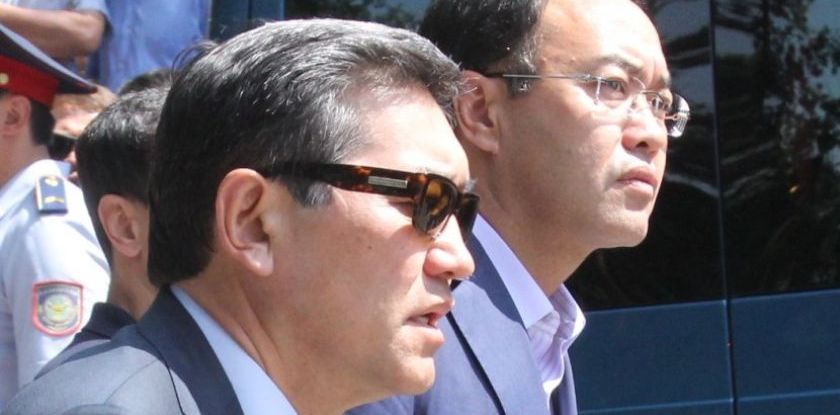In the article Are There Castes in Kazakhstan? we come to the conclusion that, after gaining its sovereignty and independence, Kazakhstan has formed four castes. We symbolically call them “The Demigods”, “The Thousand”, “The Servants of the People”, and “The People”.
As professor of Higher School of Economics and the head of the expert council of the Khamovniki Fund Simon Kordonskiy whose idea we have extrapolated to the Kazakhstan realia points out in his interview to Russian media resource Ogonyok, these castes have been created by the state. Here is a quote from the interview, “And our reality can be described only through castes. Because the castes, as oppose to classes, ethnic groups or simply social groups are the strata created by the state. Our entire society – from top to bottom – has been constructed by the state.”
Meanwhile, according to Wikipedia, a caste is a “social group whose members are different in their legal status – their membership, privileges, and responsibilities are determined by law. The membership of the caste is, as a rule, inherited.”
Thus, our supposition does not exactly correspond to the theory since, first, the caste membership in Kazakhstan is not inherited unlike the aristocratic titles in the feudal Europe, second, only the highest caste in the country has received the legal confirmation of its membership, privileges, and responsibilities whereas the rest of the castes exist unofficially, on the de-facto basis.
Nonetheless, in our opinion, these differences are not significant. If for no other reason than the fact that the Kazakhstan ruling elite, while still young, has already started to reproduce. We are talking about the practice when the state political positions are occupied by the children of those who once, together with Nursultan Nazarbayev, began to build the Kazakhstan statehood. Even though they do not inherit their positions in the state apparatus directly, their family connections and wealth (that is, among other things, translates into education) give them the privileges that cannot be compensated.
Therefore, the fact that the caste membership of “The Thousand” in Kazakhstan is not determined legally is already of no significance. It is confirmed by the other factors – the wealth, the family connections, the surroundings, the lifestyle, the consumption possibilities, etc. And these factors, indeed, are usually inherited.
Perhaps it is precisely the desire to rise above, to become a member of a higher caste that forces the Kazakhstan youth to strive and receive the legal, economic, or financial education and then enter the state service and makes the Kazakhstan families try and impress their neighbors with excessive spending.
Of course, the composition of the caste system in the modern Kazakhstan society is a hypothesis that requires proof by the means of both sociological surveys and time. However, the fact that it helps to explain many of the Kazakhstan realia including a relative stability of the state mechanism and the political model based on the idea and practices of the “elbacism” (the cult of Nazarbayev personality) speaks in its favor.
The thing is that the existence of the castes symbolically called “The Thousand” and “The Servants of the People” is impossible without the existence of “The Demigods”. And the caste privileges (both official and unofficial) that the first possess are the natural progression of the privileges of the latter. And as long as the power in the country does not move to the hands of the people which is impossible to achieve without the “liberation” of most Kazakhstanis, the existing order of things in the country will remain intact. Of course, the names of “The Demigods” may change but it is as far as the matters will progress.
It is for precisely this reason that we regard the strategic plans of the Kazakhstan authorities to modernize the consciousness of the Kazakhstan society as utopian dreams. And they cannot be realized, mainly, because the three key castes – “The Demigods”, “The Thousand”, and “The Servants of the People” – perhaps not consciously but instinctively are vitally interested in preserving the existing order of things. Therefore, they need a new type of the Kazakhstani to make the country competitive in the world and the region, and this Kazakhstani must be intelligent, educated, energetic, independent, qualified, motivated, and active in all the spheres of life sans politics. Which, of course, is essentially impossible.
The same task, albeit under another ideological “sauce” was tried to be solved in the USSR. But is never happened. As a result, both the state and the political system were left to degenerate which we are also observing now, and the speed of the degradation has only accelerated in the past years. One cannot help but notice this trend which begs the question what “The Thousand” and “The Servants of the People” think about the state of the affairs in the country, what they intend to do and how they will survive.
Unfortunately, the answer to this question, given the authoritarian political system of Kazakhstan, is impossible to find. The subject is too sensitive for Akorda to allow conducting the necessary sociological research. And the mechanisms that, in the civilized countries, help to answer the question (we are talking about political competition, free press, and active civil society), in Kazakhstan, are either blocked or not working.




